
Duke of St Albans is a title in the Peerage of England. It was created in 1684 for Charles Beauclerk, 1st Earl of Burford, then 14 years old. King Charles II had accepted that Burford was his illegitimate son by Nell Gwyn, an actress, and awarded him the Dukedom just as he had conferred those of Monmouth, Southampton, Grafton, Northumberland and Richmond and Lennox on his other illegitimate sons who married.

Charles Beauclerk, 1st Duke of St Albans, KG was an illegitimate son of King Charles II of England by his mistress Nell Gwyn.
Charles Francis Topham de Vere Beauclerk, also styled Earl of Burford by courtesy, is a British aristocrat and heir to the peerage title of Duke of St Albans.

Charles Beauclerk, 2nd Duke of St Albans, KG KB was a British politician who sat in the House of Commons from 1718 until 1726 when he succeeded to a peerage as Duke of St Albans. He was an illegitimate grandson of King Charles II.
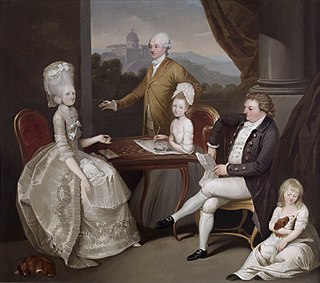
Aubrey Beauclerk, 5th Duke of St Albans was a British landowner, and a collector of antiquities and works of art.

Aubrey Beauclerk, 6th Duke of St Albans was an English aristocrat and politician.
William Beauclerk, 8th Duke of St Albans was an English aristocrat.
William Aubrey de Vere Beauclerk, 9th Duke of St Albans was an English aristocrat and cricketer.
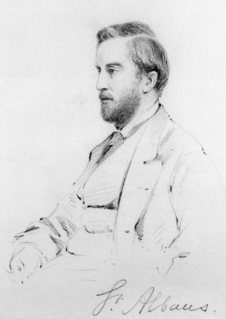
William Amelius Aubrey de Vere Beauclerk, 10th Duke of St Albans, PC DL, styled Earl of Burford until 1849, was a British Liberal parliamentarian of the Victorian era.
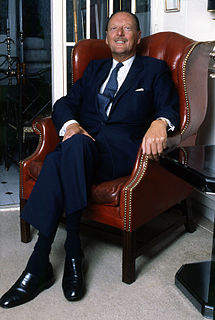
Charles Frederick Aubrey de Vere Beauclerk, 13th Duke of St Albans, OBE was a British soldier and peer.

Diana Beauclerk, Duchess of St Albans, born Lady Diana de Vere, was a British courtier. She was Mistress of the Robes to Caroline, Princess of Wales from 1714 to 1717. She was one of the Hampton Court Beauties of Mary II of England.
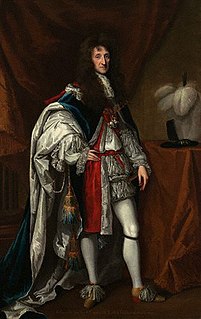
Aubrey de Vere, 20th Earl of Oxford KG PC was a Royalist during the English Civil War.
Admiral Vere Beauclerk, 1st Baron Vere, known as Lord Vere Beauclerk until 1750, was a Royal Navy officer, British peer and politician who sat in the House of Commons for 24 years from 1726 to 1750. After serving various ships in the Mediterranean and then commanding the third-rate HMS Hampton Court, he joined the Board of Admiralty, ultimately serving as Senior Naval Lord.

Lord Sidney Beauclerk was a British politician who sat in the House of Commons from 1733 to 1744. He acquired a reputation as a fortune hunter.

Admiral Lord Amelius Beauclerk was a Royal Navy officer.
Aubrey Beauclerk may refer to:
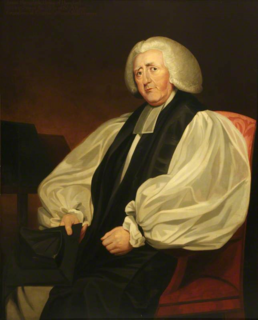
Lord James Beauclerk was an Anglican clergyman who served as the Bishop of Hereford from 1746 to 1787.
Lieutenant-General Lord George Beauclerk was a British Army officer, the sixth son of Charles Beauclerk, 1st Duke of St Albans by his wife Diana, daughter of Aubrey de Vere, 20th Earl of Oxford.
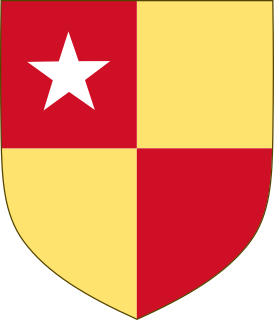
The House of de Vere were an English aristocratic family who derived their surname from Ver, in Lower Normandy, France. The family's Norman founder in England, Aubrey (Albericus) de Vere, appears in Domesday Book (1086) as the holder of a large fief in Essex, Cambridgeshire, Huntingdonshire, and Suffolk. His son and heir Aubrey II became Lord Great Chamberlain of England, an hereditary office, in 1133. His grandson Aubrey III became Earl of Oxford in the reign of King Stephen, but while his earldom had been granted by the Empress Matilda and eventually recognised by Stephen, it was not until January 1156 that it was formally recognised by Henry II and he began to receive the third penny of justice from Oxfordshire.
Lord William Beauclerk was a British army officer and politician who sat in the House of Commons from 1724 to 1733.
This page is based on this
Wikipedia article Text is available under the
CC BY-SA 4.0 license; additional terms may apply.
Images, videos and audio are available under their respective licenses.












